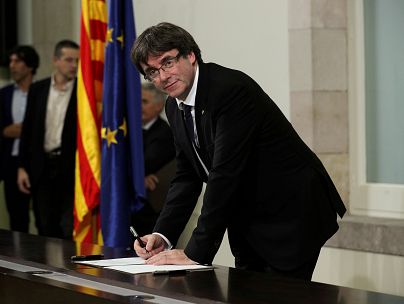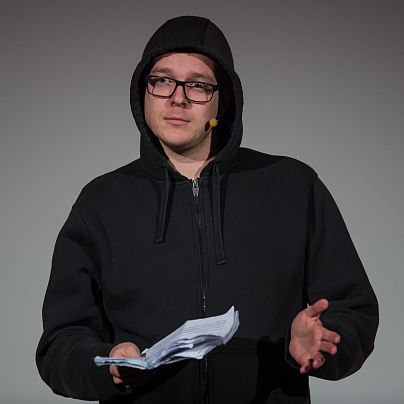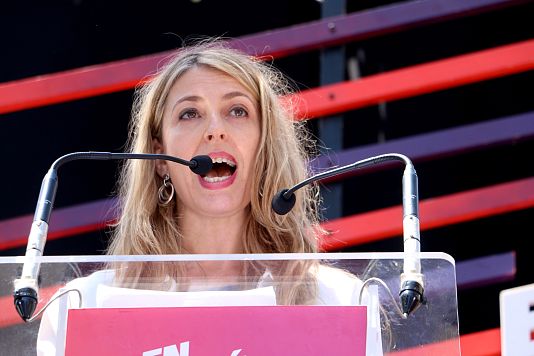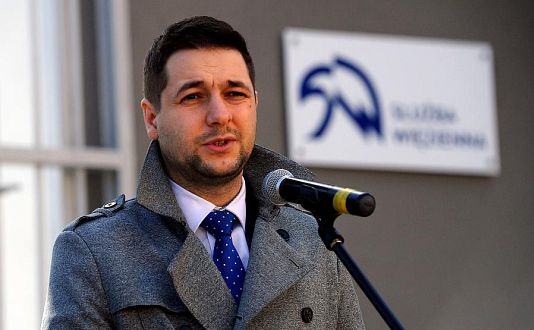Much of the of #EP2019 European election battle took place on social media. Which candidates had the most engagement?
The European elections were trending on social media as country-by-country results poured in early Monday, but which individual candidates had the best engagement during the campaign?
Using CrowdTangle software, Euronews analysed the reach and interactions of Facebook pages and Twitter accounts to see who was able to dominate the conversation.
Carles Puigdemont (Spain)
Despite living in self-imposed exile in Belgium, Catalan separatist Carles Puidgemont was one of the most-heard voices on social media over the past month and king of all candidates on Twitter with more than one million interations.
His account on the platform accounted for more than one fifth (21%) of all candidate exposure on Twitter during the campaign, according to Crowdtangle. He was also in the top 10 most viewed candidates on Facebook.
Puidgemont's most popular individual post was a defiant message on Instagram describing the shooting of an effigy of him as an "act of hate" that was "visceral and inhumane." It got 75,750 likes.
"Thank you for the support, for the votes of so many people!" he tweeted on Monday after winning seats at the European Parliament for his Catalan European Democratic Party (PDeCAT0).
Guy Verhofstadt (Belgium)
The Alliance of Liberals and Democrats for Europe (ALDE) leader and EU Presidential candidate on Monday celebrated a "historic" European election night, which he claimed would change the "balance of power".
He has also been a top performer on social media, with 8% of the 'share of voice' among candidates on Twitter — making him second on the platform — and 3% on Facebook, where he ranked 6th.
Robert Biedroń (Poland)
Poland's first openly-gay member of parliament, who started his own political party this year and won 6% of the vote, was best-performing candidate on Facebook with 5% of 'share of voice' over the past month.
He had more than 578,000 interactions on the platform over the same period.
On Monday he praised supporters for their "courage" in backing a new party. "Thank you for that," he said.
Nico Semsrott (Germany)
Nico Semsrott, a candidate with Germany's satirical party Die Partei, had the second most successful Twitter campaign.
The joke grouping also scored an unexpected success at the polls, gaining three seats — much to the surprise and amusement of his followers.
Klára Dobrev (Hungary)
A controversial character in Hungary, centre-left candidate Dobrev is the wife of disagraced former Prime Minister Ferenc Gyurcsany. Nevertheless her social media campaign has been a success, with the second-highest share of voice on Facebook and a remarkable engagement rate of more than 10%.
As voters prepared to go to the polls in Hungary, she shared pictures of the final days of her campaign.
Jordan Bardella (France)
The 23-year-old lead candidate for Marine Le Pen's National Rally (RN) is not only one of the youngest members of the newly-elected parliament but has also emerged as a future leader of the French far-right.
He had the fourth-highest share of voice of all the candidates on Twitter and the seventh-highest on Facebook.
A mobile video upload with Le Pen at a rally on Friday evening earned 2.2K retweets.
Oriol Junqueras (Spain)
The former deputy of Puidgemont's separatists is currently in jail but has been elected to the European Parliament.
He has been able to use his considerable social media leverage to spread his message.
Maria Eugenia Rodriguez Palop (Spain)
Podemos "United We Can" party top candidate Maria Eugenia Rodriguez Palop will be one of six MEPs from her party. This falls far short of the six and five representatives that United Left and Podemos secured, respectively, when they ran separately in 2014.
However, she has a high rate of engagement on Twitter compared to other candidates — proportionately three times higher than Puidgemont.
Patryk Jaki (Poland)
The Deputy Minister of Justice Patryk Jaki and candidate for the victorious ruling Law and Justice party (PiS) celebrated his European election victory on Monday.
The 32-year-old is a polarising figure in Polish politics. He opposes what he sees as the Islamisation of Europe and once said immigrants from Africa and the Middle East will only enter the country “over his dead body”. He also loves football, dotes on his young son who has Down’s syndrome and prides himself on his lowly origins in the Soviet-era tower blocks that still house millions of his compatriots.
Many Poles like his anti-elitist posture, which chimes with a strain of populist right-wing thinking in parts of Eastern Europe that has alarmed some Western capitals.
All of which may explain why his social media accounts were among the top 20 most talked-about among European Parliament candidates.















